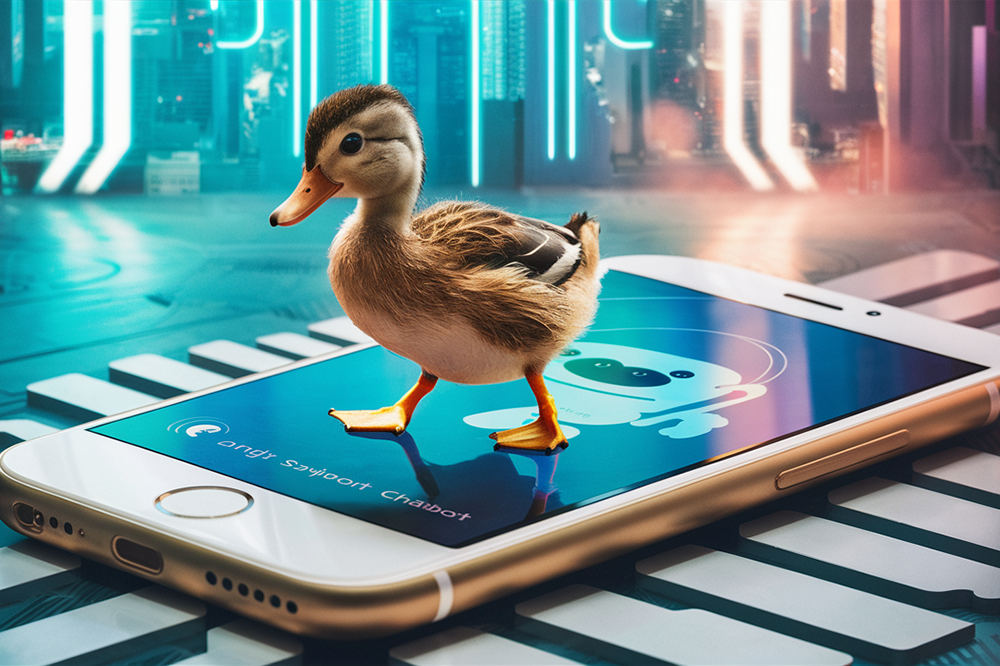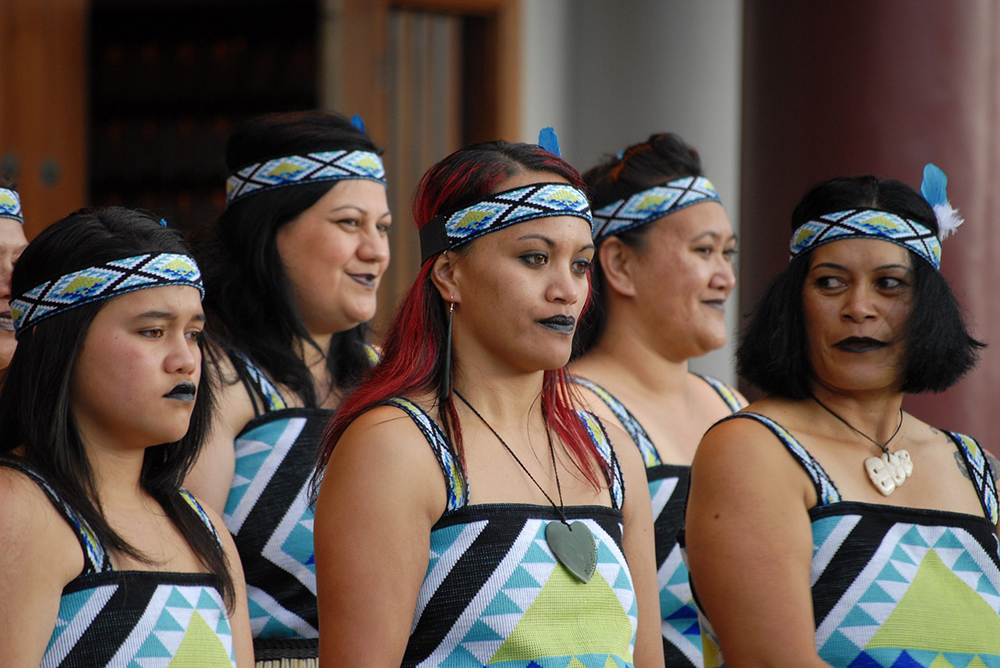On August 5, 2024, the final presentation for the project “The Animal Whisperer” took place at the FHNW School of Business. It was initiated by Prof. Dr. Oliver Bendel, who has been working on animal-computer interaction and animal-machine interaction for many years. Nick Zbinden, a budding business informatics specialist, was recruited as a project collaborator. From March 2024, he developed three applications based on GPT-4o, the Cow Whisperer, the Horse Whisperer and the Dog Whisperer. They can be used to analyze the body language, behaviour, and environment of cows, horses and dogs. The aim is to avert danger to humans and animals. For example, a hiker can receive a recommendation on their smartphone not to cross a pasture if a mother cow and her calves are present. All they have to do is call up the application and take photos of the surroundings. The three apps are now available as prototypes. With the help of prompt engineering, they have been given extensive knowledge and skills. Above all, self-created and labeled photos were used. In the majority of cases, the apps correctly describe the animals’ body language and behavior. Their recommendations for human behavior are also adequate. The project team summarized the results in a paper and submitted it to an international conference (Image: Ideogram).
Video Data For the Training of AI Models
According to Hans Jørgen Wiberg, the founder of the app for blind and visually impaired people, Be My Eyes plans to make video data from conversations between blind users and sighted volunteers available for training AI models. This was revealed in an email he sent to all users. The initiative takes place under a strict privacy policy that gives users the option to opt out of data sharing. Photos and their AI descriptions are not used for AI training in order to avoid perpetuating existing prejudices. According to Wiberg, AI models should reflect the actual experiences and abilities of blind people. Bryan Bashin, Vice Chairman of Be My Eyes, emphasizes that blind testers have improved the OpenAI models, which for him proves how important their participation is. Be My Eyes caused a sensation in 2023 with the new Be My AI feature. Prof. Dr. Oliver Bendel wrote the first paper on this topic in November 2023, submitted it in December 2023, and presented it at the AAAI Spring Symposia at Stanford University in March 2024 (Image: DALL-E 3).
Miss AI 2024
According to the organizers, the World AI Creator Awards (WAICA) is a first-of-its-kind global awards program dedicated to recognizing the achievements of AI creators around the world. The first installment of the WAICAs was Miss AI – where traditional beauty pageants intersected with the world of AI creators. Contestants were judged on their beauty, technical implementation, and social impact. The winners of Miss AI 2024 are Kenza Layli (Morocco), Lalina (France), and Olivia C (Portugal). They are already successful on Instagram, showing themselves in different poses and clothes. The beauty pageant attracts worldwide attention, but is also criticized. One statement is that women are being turned into objects, no different from the classical variants. Another observation is that the first place could strengthen religious conservatism – because Kenza Layli is an artificial woman who covers her virtual hair with a digital hijab (Image: Ideogram).
H@mmur@pi was Born
Since 2012, Prof. Dr. Oliver Bendel has been building chatbots and voice assistants – partly with his students and partly on his own. These have been discussed by the media and found interesting by NASA. He gained his theoretical knowledge and practical illustrative material from his doctorate on this topic a quarter of a century ago. Since 2022, the focus has been on dialog systems for dead and endangered languages. Under his supervision, Karim N’diaye developed the chatbot @ve for Latin and Dalil Jabou the chatbot @llegra for Vallader, an idiom of Rhaeto-Romanic, enhanced with voice output. Since May 2024, he has been testing the scope of GPTs – “custom versions of ChatGPT”, as OpenAI calls them – for endangered languages such as Irish (Irish Gaelic), Maori, and Basque. Prototypes have already been created for all three, namely Irish Girl, Maori Girl, and Adelina (for Basque). He is also investigating the potential for extinct languages such as Egyptian and Akkadian. The GPTs do not readily communicate in hieroglyphics or cuneiform, but they can certainly represent and explain signs of visual languages. It is even possible to enter entire sentences and ask how they can be improved. The result is then – to stay with Akkadian – complex structures made up of cuneiform characters. H@mmur@pi specializes in this language. He is also familiar with the culture and history of the region.
Cleop@tr@ was Born
Since 2012, Prof. Dr. Oliver Bendel has been building chatbots and voice assistants – partly with his students and partly on his own. These have been discussed by the media and found interesting by NASA. He gained his theoretical knowledge and practical illustrative material from his doctorate on this topic a quarter of a century ago. Since 2022, the focus has been on dialog systems for dead and endangered languages. Under his supervision, Karim N’diaye developed the chatbot @ve for Latin and Dalil Jabou the chatbot @llegra for Vallader, an idiom of Rhaeto-Romanic, enhanced with voice output. Since May 2024, he has been testing the scope of GPTs – “custom versions of ChatGPT”, as OpenAI calls them – for endangered languages such as Irish (Irish Gaelic), Maori, and Basque. Prototypes have already been created for all three, namely Irish Girl, Maori Girl, and Adelina (for Basque). He is also investigating the potential for extinct languages such as Egyptian and Akkadian. The GPTs do not readily communicate in hieroglyphics or cuneiform, but they can certainly represent and explain signs of visual languages. It is even possible to enter entire sentences and ask how they can be improved. The result is then – to stay with Egyptian – complex structures of hieroglyphs. Cleop@tr@, which was created on 12 May 2024, specializes in this language. She is also familiar with the culture and history of ancient Egypt.
Teaching and Learning with GPTs
In the spring semester of 2024, Prof Dr Oliver Bendel integrated virtual tutors into his teaching. These were ‘custom versions of ChatGPT’, so-called GPTs. Social Robotics Girl was available for the elective modules on social robotics, created in November 2023, and Digital Ethics Girl from February 2024 for the compulsory modules “Ethik und Recht” and ‘Ethics and Law’ within the Wirtschaftsinformatik and Business Information Technology degree programmes (FHNW School of Business) and “Recht und Ethik” within Geomatics (FHNW School of Architecture, Construction and Geomatics). The virtual tutors have the “world knowledge” of GPT-4, but also the specific expertise of the technology philosopher and business information scientist from Zurich. It has been shown that the GPTs can provide certain impulses and loosen up the lessons. They show their particular strength in group work, where students no longer have to consult their lecturer’s books – which is hardly useful when there is a lot of time pressure – but can ask them specific questions. Last but not least, there are opportunities for self-regulated learning. The paper “How Can GenAI Foster Well-being in Self-regulated Learning?” by Stefanie Hauske and Oliver Bendel was published in May 2024 – it was submitted to the AAAI Spring Symposia in December 2023 and presented at Stanford University at the end of March 2024.
DuckDuckGo AI Chat
“DuckDuckGo AI Chat is an anonymous way to access popular AI chatbots – currently, Open AI’s GPT 3.5 Turbo, Anthropic’s Claude 3 Haiku, and two open-source models (Meta Llama 3 and Mistral’s Mixtral 8x7B), with more to come. This optional feature is free to use within a daily limit, and can easily be switched off.” (DuckDuckGo, 6 June 2024) This was reported by the DuckDuckGo blog on June 6, 2024. Initial tests have shown that the responses come at high speed. This is an excellent way of testing and comparing different language models one after the other. All this is possible with a high level of data protection: “Chats are private, anonymized by us, and are not used for any AI model training.” (DuckDuckGo, 6 June 2024) It would be desirable for this service to be offered free of charge and without limitation. But that is still a long way off: DuckDuckGo is currently exploring the possibility of “a paid plan for access to higher daily usage limits and more advanced models” (DuckDuckGo, 6 June 2024). You can try out the new tool at duck.ai or duckduckgo.com/chat (Image: Ideogram).
Maori Girl Can Speak and Write Maori
Conversational agents have been the subject of Prof. Dr. Oliver Bendel’s research for a quarter of a century. He dedicated his doctoral thesis at the University of St. Gallen from the end of 1999 to the end of 2022 to them – or more precisely to pedagogical agents, which would probably be called virtual learning companions today. He has been a professor at the FHNW School of Business since 2009. From 2012, he mainly developed chatbots and voice assistants in the context of machine ethics, including GOODBOT, LIEBOT, BESTBOT, and SPACE THEA. In 2022, the information systems specialist and philosopher of technology then turned his attention to dead and endangered languages. Under his supervision, Karim N’diaye developed the chatbot @ve for Latin and Dalil Jabou the chatbot @llegra for Vallader, an idiom of Rhaeto-Romanic, enhanced with voice output. He is currently testing the range of GPTs – “customized versions of ChatGPT”, as OpenAI calls them – for endangered languages such as Irish (Irish Gaelic), Maori, and Basque. According to ChatGPT, there is a relatively large amount of training material for them. On May 9, 2024 – one week after Irish Girl – a first version of Maori Girl was created. At first glance, it seems to have a good grasp of the Polynesian language of the indigenous people of New Zealand. You can have the answers translated into English or German. Maori Girl is available in the GPT Store and will be further improved over the next few weeks
Irish Girl Can Speak and Write Irish
Conversational agents have been the subject of Prof. Dr. Oliver Bendel’s research for a quarter of a century. He dedicated his doctoral thesis at the University of St. Gallen from the end of 1999 to the end of 2022 to them – or more precisely to pedagogical agents, which would probably be called virtual learning companions today. He has been a professor at the FHNW School of Business since 2009. From 2012, he mainly developed chatbots and voice assistants in the context of machine ethics, including GOODBOT, LIEBOT, BESTBOT, and SPACE THEA. In 2022, the information systems specialist and philosopher of technology then turned his attention to dead and endangered languages. Under his supervision, Karim N’diaye developed the chatbot @ve for Latin and Dalil Jabou the chatbot @llegra for Vallader, an idiom of Rhaeto-Romanic, enhanced with voice output. He is currently testing the range of GPTs – “customized versions of ChatGPT”, as OpenAI calls them – for endangered languages such as Irish (Irish Gaelic), Maori, and Basque. According to ChatGPT, there is a relatively large amount of training material for them. A first version of Irish Girl was created on May 3, 2024. At first glance, she seems to have a good grasp of the Goidelic language from the Celtic family. You can have the answers translated into English or German. Afterwards, you may have to ask her to switch back to Irish. Irish Girl is available in the GPT Store and will be further improved in the coming weeks.
Start of the AAAI 2024 Spring Symposia
The AAAI 2024 Spring Symposium Series will be held at Stanford University from March 25-27, 2024. There are a total of eight symposia. One of them is “Impact of GenAI on Social and Individual Well-being”. It will be hosted by Takashi Kido (Teikyo University, Japan) and Keiki Takadama (The University of Electro-Communications, Japan). The announcement text reads: “Generative AI (GenAI) presents significant opportunities and challenges in the areas of individual and societal well-being. While its benefits in areas such as healthcare, the arts, and education are enormous, it also requires careful consideration of ethics, privacy, fairness, and security.” On March 25, 2024, Takashi Kido opened the symposium with an interesting talk, including how ChatGPT would decide on the trolley problem. More information about the symposium is available here.









